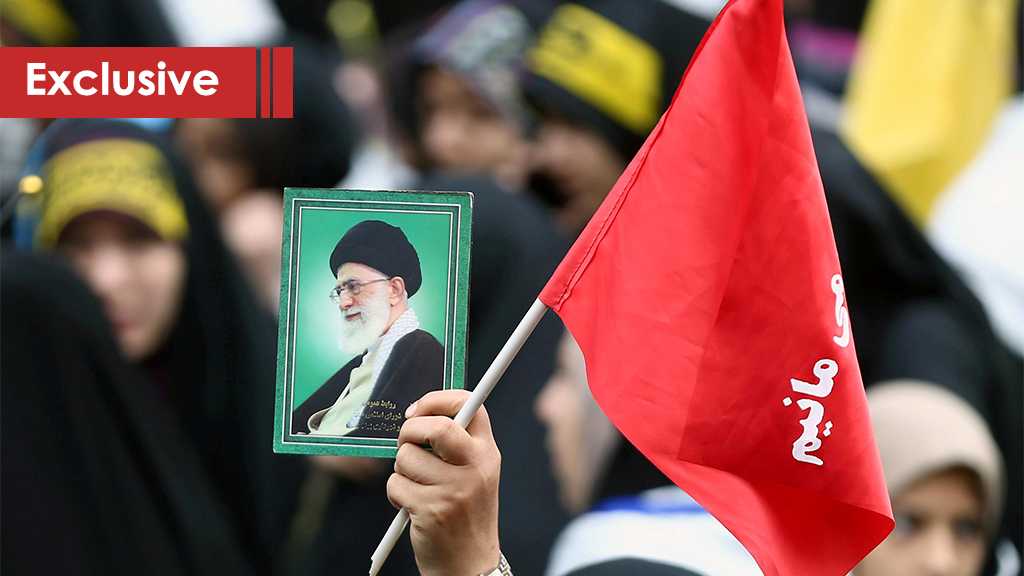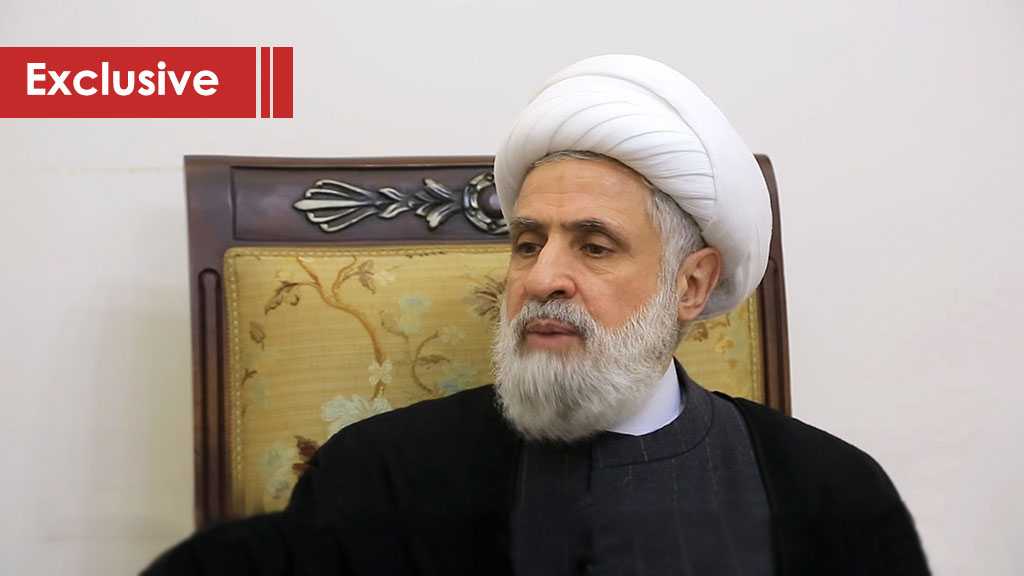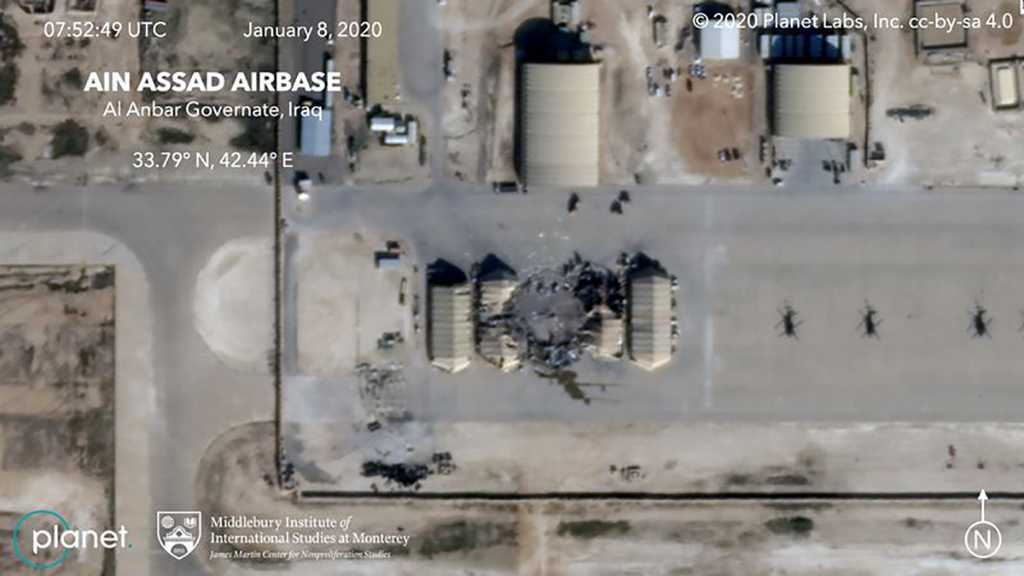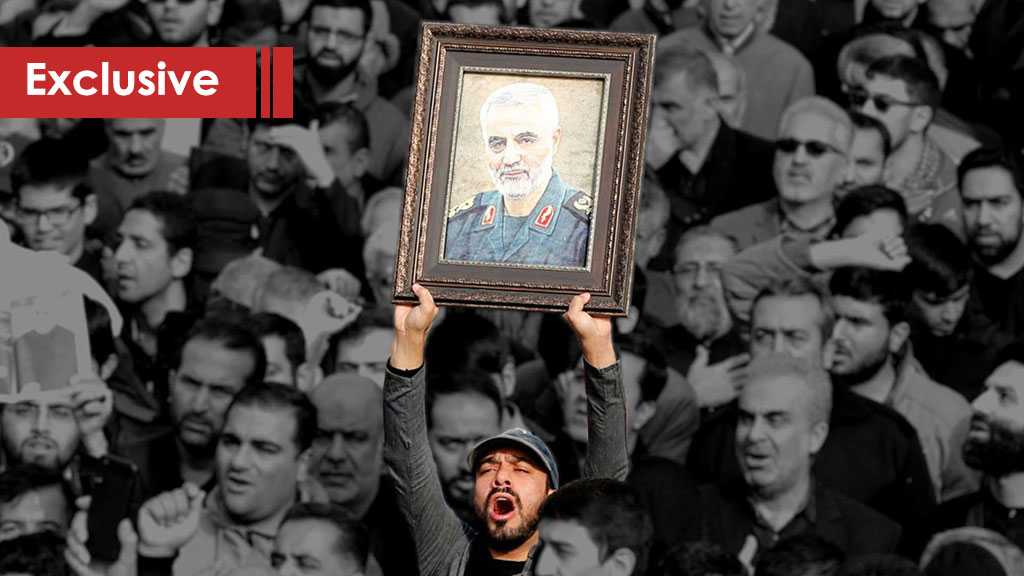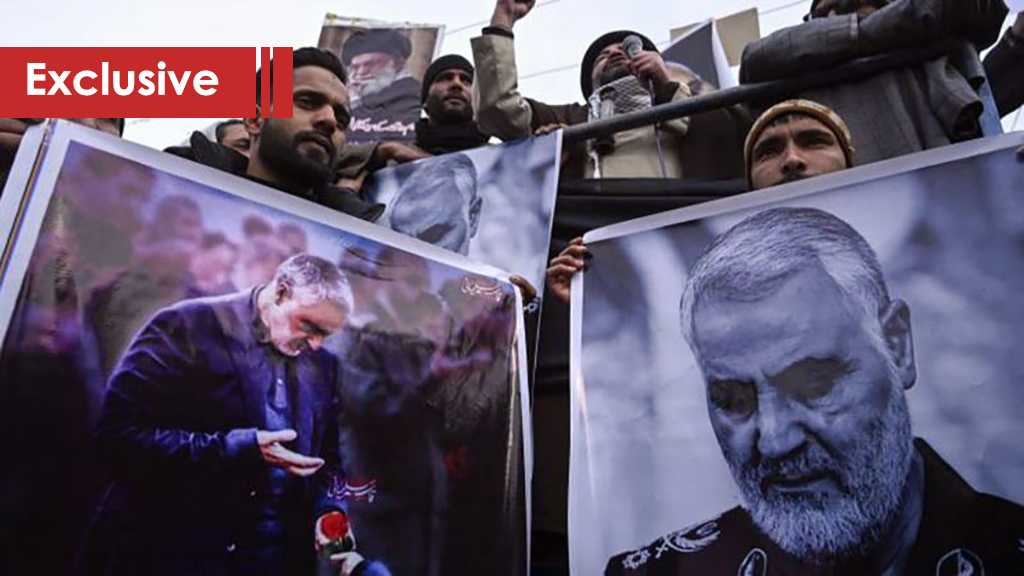الجمعة 13 مايو 2022
استراتيجيّات دمشق وطهران المشتركة، فقد تجاوزت بأشواط بعيدة هوامش العلاقات والمكاسب والمصالح السياسية.
في الشكل السياسيّ العام، قد لا تُشكّل زيارة الرئيس السوريّ بشار الأسد إلى طهران، يوم الأحد 8 أيّار/مايو، مفاجأة لمتابعي الملفات السياسية في المنطقة والعلاقات بين البلدين الحليفين، حتى لو ابتعدت نحو 3 سنوات عن الزيارة السابقة، فهي تأتي ضمن الحراك السياسيّ البينيّ المتوقّع في أيّة لحظة، وذلك ربطاً بطبيعة العلاقات بين البلدين، وبتطورات المنطقة المرتبطة بكلّ تفاصيلها السياسية والعسكرية والاقتصادية بالعاصمتين اللتين شكّلتا محور الأحداث في المنطقة، ووجهة أهداف كلّ المشاريع الدولية للإقليم على مدى العقد الأخير على وجه الخصوص.
لكنْ، ومن جهة أخرى، إنّ هذه الزيارة بعيدة كلّ البعد، في الشكل والمضمون، عن كونها زيارة روتينيّة أو تواصلاً عاديّاً ودوريّاً بين قيادتي بلدين حليفين أو صديقين، فمعظم الحراك السياسيّ الإقليميّ والدوليّ الذي شهدته المنطقة في الأعوام الأخيرة، وما رافقه من تطورات اقتصادية مفتعلة أو قسريّة، وتحرّكات أو خطط وهجومات عسكريّة، كان يستهدف فكّ هذا الحلف المتين بين البلدين أو على الأقلّ إضعافه.
إن دمشق تحديداً تلقّت أكبر قدر من الاستهدافات والضغوطات والإغراءات التي تركّزت بمجملها على هذا البند – الإيرانيّ والمقاوم – الثابت في طريقة التعاطي معها منذ انتصار المقاومة الإسلامية في لبنان، واندحار العدو الصهيوني من الجنوب في العام 2000، ثم اجتياح العراق ودخول مشروع “الشرق الأوسط الجديد” حيز التنفيذ، حتى اللحظة.
تأتي زيارة الرئيس الأسد إلى طهران بعد أقلّ من شهرين على زيارته العاصمة الإماراتية أبو ظبيّ، والتي اعتبرها العديد من المحللين والمتابعين وقتذاك منعطفاً مفصليّاً في السياسة الدولية والإقليميّة حيال الشام، بعد 10 سنوات من محاولات تحطيم سوريا بكلّ السبل، وكسر إرادة دمشق الوطنيّة، وعزلها في أقصى زوايا الضعف السياسيّ والعسكريّ والاقتصادي، لترفع آخر راية بيضاء يمكنها نزعها من مزق خيمة المقاومة، بعد أنْ صبغ العالم الغربي وأدواته الداخلية والإقليمية خريطتها كلها بلون الدم الأحمر.
لقد قيل الكثير عن زيارة الرئيس الأسد للإمارات، وما سيليها، وذهب البعض بعيداً في الحديث عن نجاح العمل الغربي – العربيّ بإحداث خرق على خطّ دمشق – طهران، متّكئين على تداعيات الحصار الخانق الذي تعانيه سوريا، وحاجتها إلى طوق نجاه يُبعد شبح الجوع المُخيّم على بيوت مواطنيها ومؤسساتها.
وهناك من تحدث عن تحقيق العرب المطبّعين مع العدو الإسرائيليّ نقاطاً جديدة تخدم مشروع العدو، على حساب مشروع المقاومة التي تقف دمشق وطهران على رأسه وفي قلبه.
وقد تحدّثنا حينذاك في “الميادين نت” عمّا أثبتته دمشق دائماً بأنّ كل تلك التحليلات والاستشرافات تثبت جهلاً بالسياسة السورية وثوابتها الوطنية والاستراتيجية، وتنمّ عن ضعف في قراءة حقيقة طبيعة العلاقات السورية – الإيرانيّة، واستسهال في دراسة النتائج والتحديثات الاستراتيجيّة المتتالية التي عمل ويعمل عليها محور المقاومة الممتد ميدانيّاً من طهران إلى أقصى الشمال والشرق السوريّيْن، مروراً باليمن والعراق ولبنان، وبمركزه فلسطين المحتلة.
لذلك كله، يأتي هذا التواصل السوري الإيرانيّ الجديد، وكل تصريح أو جملة وردت خلال هذه الزيارة على لسان الرئيس السوريّ بشار الأسد، والسيد علي خامنئي، والرئيس الإيراني إبراهيم رئيسي، لتعطي فرصة جديدة لمن يريد قراءة الحدث كما ينبغي، ولاستشراف مستقبل المنطقة انطلاقاً من إرادة “محور القدس” وخططه ومشاريعه لمنطقته وشعوبه، لا من زاوية المشاريع والخطط الأميركية والإسرائيلية للمنطقة، والتي تهاوت وتتهاوى تحت ضربات هجوم مضادّ على امتداد ساحات المقاومة في المنطقة وميادينها، وصولاً إلى ميدان الصراع العالميّ الأشمل حول العاصمة الأوكرانية كييف، وعلى مشارف الحدود مع حلف الناتو.
لقد أصرّ الرئيس الأسد بدايةً على تذكّر الشهيد قاسم سليماني، ودوره الكبير في النضال في مواجهة المشاريع الغربية في سوريا تحديداً، وفي المنطقة عموماً، ومحبته لسوريا ومحبة سوريا له، ودوره في ترتيب زيارة الرئيس الأسد إلى طهران قبل 3 سنواتٍ.
وحين يكون اسم اللواء قاسم سليماني، بكلّ ما يعنيه هذا الاسم لأهل المقاومة وأعدائها الذين استهدفوه شخصيّاً، فاتحة الحديث بين قادة البلدين، ويكون خلَفه اللواء إسماعيل قاآني الذي رتّب هذه الزيارة وحضر كل تفاصيلها، فهذا يعني أننا لسنا أمام لقاء روتينيّ وعاديّ لقادة سياسيين عاديين، بل أمام لقاء بين قادة ميدانيين يقاتلون كتفاً إلى كتف لبلوغ غايات استراتيجية كبيرة تتعدّى كلّ ما هو عاديّ وروتينيّ في العلاقات بين الدول.
نحن هنا، وبناءً على كلّ كلمة قيلت في هذه القمّة أو خبرٍ رشح عن كواليسها أمام لقاء بين قادة محور مقاومٍ يتحدّثون لغة واحدة، ويستهلّون كلامهم ويختمونه بالحديث عن المقاومة وحاضرها وجدواها ومستقبلها وطرق تصعيدها وحصد نتائجها، ويبحثون في السياسة من قلب هذا السياق تحديداً، وتبدو وحدة الحال بينهم أمتن وأقوى من أيّ وقت مضى، منطلقين من واقعٍ عمليّ واستراتيجيّ اشتغلوا عليه معاً لسنوات طويلة، وقدّموا فيه الكثير من الأثمان الباهظة والتضحيات النفيسة، ويرون أنّ نتائجه حتى اللحظة باهرة وعظيمة، وتستدعي ظروفه الراهنة لقاءً مثل هذا للتباحث والتشاور ووضع الخطط الاستراتيجية القادمة.
إنّ فلسطين تشتعل تحت أقدام المحتلّ الذي يتخبّط تحت وقع عمليّات فدائيّة يعجز عن التعامل معها، كما يعجز عن القيام بردّ عسكريّ شامل ومدمّر كعادته في أزمان خلت على مدن فلسطين وقراها، حيث تهدّد قوى المقاومة الفلسطينية العدو بالويل والثبور إذا ما أقدم على ذلك أو على اغتيال أيّ قائد من قادة المقاومة، والعدو يعرف أنّ المقاومة جدّية وقادرة، وهي على قدر التهديدات هذه المرّة، ويعرف أنّ فصائل المقاومة الفلسطينية التي تُشكّل عصب هذا المحور، أذابت الكثير من الفروقات والتناقضات والخلافات لمصلحة الهدف الأسمى، كما يعلم أنّ هذا العمل استلزم جهد جميع أطراف محور المقاومة لبلوغه، وعلى رأسهم طهران ودمشق. كما أنّ الواقع الميدانيّ في سوريا واليمن والعراق، والسياسيّ – الانتخابيّ – في لبنان، يُظهر تقدّماً كبيراً وراسخاً لقوى محور المقاومة، مقابل عجز واضح للمحور المعادي وأدواته المحليّة.
وانطلاقاً من هذا كلّه، فإنّ حديث قادة المقاومة في سوريا وإيران خلال هذه الزيارة عن نظام عالميّ جديد هو حديث يصدر عمّن ساهم وشارك في صنع هذا النظام على مستوى الإقليم على الأقلّ، الأمر الذي ساعد كثيراً القوى الدولية الحليفة والصديقة، وعلى رأسها روسيا والصين، في السير باتّجاه المواجهة مع النظام العالمي الذي تقوده الولايات المتحدة، والسعي إلى إزاحته وإرساء نظام جديد.
لقد ساهمت دمشق وطهران وقوى محور المقاومة في المنطقة بشكل أساسيّ ومباشر وفاعل في كسر أخطر المشاريع الغربية والإسرائيلية لمنطقتنا في السنوات العشر الأخيرة وإفشالها، وها هو الرئيس السوريّ بشار الأسد يقف إلى جانب إخوة السلاح في طهران – بعد حديث عن لقاء جمعه بالسيد حسن نصر الله قبل الزيارة إلى طهران – ليعلنوا معاً تمتين هذا الحلف الاستراتيجي، ويبحثوا في سبل ترسيخه وتقدّمه على جميع المستويات، وخصوصاً الاقتصاديّة منها، وذلك بعد أنْ بلغ المستوى العسكريّ والأمني درجة كبيرة من الوضوح في التقدّم والأفضليّة.
ولعلّ تدشين خطّ ائتمان إيراني جديد باتّجاه سوريا، بالتزامن مع الزيارة، لإمداد دمشق بموارد الطاقة اللازمة للفترة القادمة، أفضل مؤشّر على طريقة العمل الواثق الذي تنتهجه قيادة البلدين.
من هنا تحديداً، يجب أن يعيد المهتمّون في الإقليم والعالم قراءة العلاقات الثنائية بين سوريا وإيران، قبل أيّ قراءة في تفاصيل النشاطات السياسية التي تضطرب وتعتمل في المنطقة، والتي تشتغل دمشق وطهران معاً على هوامشها المتاحة لتحقيق إنجازات سياسية واقتصاديّة مدروسة تماماً، ولا تخرج عن المصلحة العامة لاستراتيجية المحور، فيما قد تحقّق بعض الهدوء وربط النزاعات على عدة جبهات وميادين، قد يبدو أنّ المحور الآخر يستفيد منها مرحليّاً أو يحدّ من خسائره على الأقلّ.
وحين يركّز قادة سوريا وإيران في أحاديثهم خلال هذه الزيارة على شعوب المنطقة العربية وموقفها من القضية الفلسطينية، والهوّة الساحقة بينها وبين قادتها وحكوماتها، وهو ما تجلّى في الاحتفال بيوم القدس العالميّ، فإنّ الرسالة تعني تماماً وتحديداً الثقة بقدرة أهل المقاومة وشعبها في المنطقة على عزل كيان الاحتلال الإسرائيليّ، ورهان قادة محور المقاومة الثابت على فشل كلّ محاولات التطبيع العربية مع هذا الكيان المؤقت، أو دمجه في المنطقة ككيان طبيعي ينتمي إلى جسم الإقليم.
هذا الأمر تحديداً يُظهر موقف دمشق وطهران الدائم من التطبيع، ويضع حدّاً للتأويلات الجديدة والضعيفة التي برزت بعد زيارة الرئيس الأسد إلى الإمارات العربية المتحدة في آذار/مارس الماضي، وخصوصاً أنّ الرئيس الأسد أكّد في تصريح له خلال زيارته طهران أنّ مجريات الأحداث في المنطقة “أثبتت مجدّداً صواب الرؤى والنهج الذي سارت عليه سوريا وإيران منذ سنوات”، وخصوصاً في مواجهة الإرهاب والمشاريع الغربية للمنطقة. وغنيّ عن القول إنّ دمشق وطهران تصنّفان كيان الاحتلال قوّة إرهابية عالميّة مدمّرة، كما تصنّفان الجماعات الإرهابية المتطرفة أدوات لهذا الكيان وللغرب الراعي له.
من المفترض أن يكون كل تعويل خارجيّ أو إقليميّ على كسر حلف طهران – دمشق أو إضعافه قد سقط في هذه الزيارة، كذلك المراهنات على تداعيات الحصار الغربي لسوريا، والحديث عن محاولات عربيّة لإحداث خرقٍ من خلال الانفتاح على دمشق وتعويضها اقتصاديّاً وسياسيّاً، فالاستراتيجية الوطنية السورية تعمل على مسار آخر تماماً، بعيد كلّ البعد عن المقايضات السياسية والاقتصادية، وهي ترى أنّ أيّ انفتاح عربيّ أو دوليّ عليها فرضه صمودها وقتالها المرير على مدى 10 سنوات، وإلى جانبها الحليف والشريك الإيرانيّ، وباقي الحلفاء في محور المقاومة والعالم.
وقد كان تمتين الحلف الاستراتيجيّ بين البلدين وجميع قوى محور المقاومة الموضوعَ الرئيسيّ في هذا اللقاء، وجرى البحث في كلّ السبل الواجب اتّخاذها فوراً لتعزيز هذا الحلف، ولسدّ كلّ نقص اقتصاديّ على جبهاته الداخلية، فقد كان المسؤولون السوريون والإيرانيون يوقّعون اتفاقيات وتفاهمات اقتصادية جديدة، حين كان الرئيس الأسد يقول للمرشد الإيراني السيد علي خامئني والرئيس إبراهيم رئيسي: “إنّ ما يمنع الكيان الصهيونيّ من السيطرة على المنطقة هو العلاقات الاستراتيجية السورية الإيرانية”، وهو السياق الذي اتّبعه جميع المسؤولين في البلدين في تصريحاتهم أثناء الزيارة وبعدها.
ولعلّ قول وزير الخارجية الإيرانيّ السيد أمير عبد اللهيان بعد اللقاء إنّ “زيارة الرئيس الأسد فتحت مرحلة استراتيجيّة جديدة بين البلدين”، وحديثه عن “العزم الإيراني السوريّ على الرقيّ بالعلاقات الثنائية وصولاً إلى أفضل مستوى لائق”، يدلان بشكل واضح على النحو الذي ستجري فيه الأمور على هذا الصعيد في المرحلة القادمة.
بعد زيارة الرئيس الأسد هذه لإيران، هناك زيارة لأمير قطر على رأس وفد رفيع إلى طهران، وذلك بعد وقت قصير من إعطاء واشنطن أمير قطر صفة “الحليف الاستراتيجيّ”، وفي هذا مؤشّر على أنّ طهران ودمشق استطاعتا وأد جميع الرهانات التي جرى العمل عليها طوال السنوات العشر الماضية، والتي كانت تهدف إلى إسقاطهما وهزيمتهما أو عزلهما تماماً على الأقلّ.
ومن الواضح أنّ انتصارهما وتقدّم حليفيهما الروسيّ والصينيّ على الجبهات العسكرية والاقتصادية على مستوى العالم، يدفعان دول المنطقة إلى السّعي نحو تعزيز العلاقات معهما، باعتبارهما قوّتين لا يمكن تجاوزهما بعد الآن.
أمّا استراتيجيّات دمشق وطهران المشتركة، فقد تجاوزت بأشواط بعيدة هوامش العلاقات والمكاسب والمصالح السياسية العادية بين الدول، وبلغت مرحلة العمل كقوّة واحدة مع الشركاء في قوى المقاومة في المنطقة، وها هي تلك الاستراتيجية تعمل بأقصى قوتها على أرض فلسطين المحتلة الآن، إذ تُكمل المقاومة الفلسطينية مهمّة رسم النظام الإقليميّ الجديد.
إن الآراء المذكورة في هذه المقالة لا تعبّر بالضرورة عن رأي الميادين وإنما تعبّر عن رأي صاحبها حصراً
Filed under: China, Iran's Supreme Leader Ayatollah Seyed Ali Khamenei, IRAQ, Russia, Syria, Syrian President Bashar Al-Assad, The Islamic Republic of Iran, United Arab Emirates UAE, War on Iraq | Tagged: Global war on Syria, International Quds Day, Iranian Foreign Minister Hossein Amirabdollahian, Multi-polar world order, Normalisation, Normalisation is betrayal, Palestinian Resistance factions, Qassemi farewell, Sayyed Hassan Nasrallah, The Axis of Resistance | Comments Off on الرئيس الأسد في طهران: الحلف القويّ يزداد قوّة






